What happened at Talis Insight APAC 2025?
Talis Insight APAC (Asia-Pacific) returned for an in-person event this year on 28th and 29th May.
Posted 3rd June 2025
Talis Insight APAC (Asia-Pacific) returned for an in-person event this year on 28th and 29th May.
Posted 3rd June 2025
If you haven’t heard of Talis Insight APAC before, it’s our free, two-day event for library professionals to gather, network and discuss the role of Talis Aspire resource lists, sharing ideas for best practice.
This year’s event was hosted by Griffith University with 35 attendees across the two days. It was an insightful two days with lots of ideas shared, collaboration and networking.
Read on for a recap of Talis Insight APAC 2025…
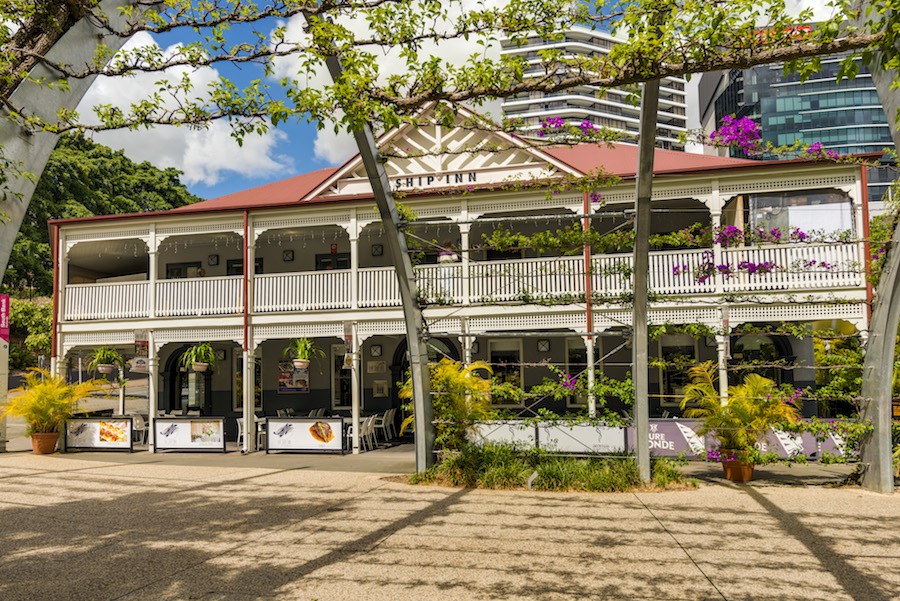
The event began with introductions and a keynote address by Nicola Langford, International Sales Director for Technology from Sage. Nicola thanked our wonderful hosts, Griffith University, for helping us put the event together in such a fabulous location: The Ship Inn in Brisbane.
We then heard from Sandra Kalms, Manager Scholarly Resource Services at Griffith University, truly kicked things off by delivering an acknowledgement of country which connected the significance of Brisbane’s South Bank location to local First Nations people and our opportunity to build on this by learning, gathering and exchanging information.
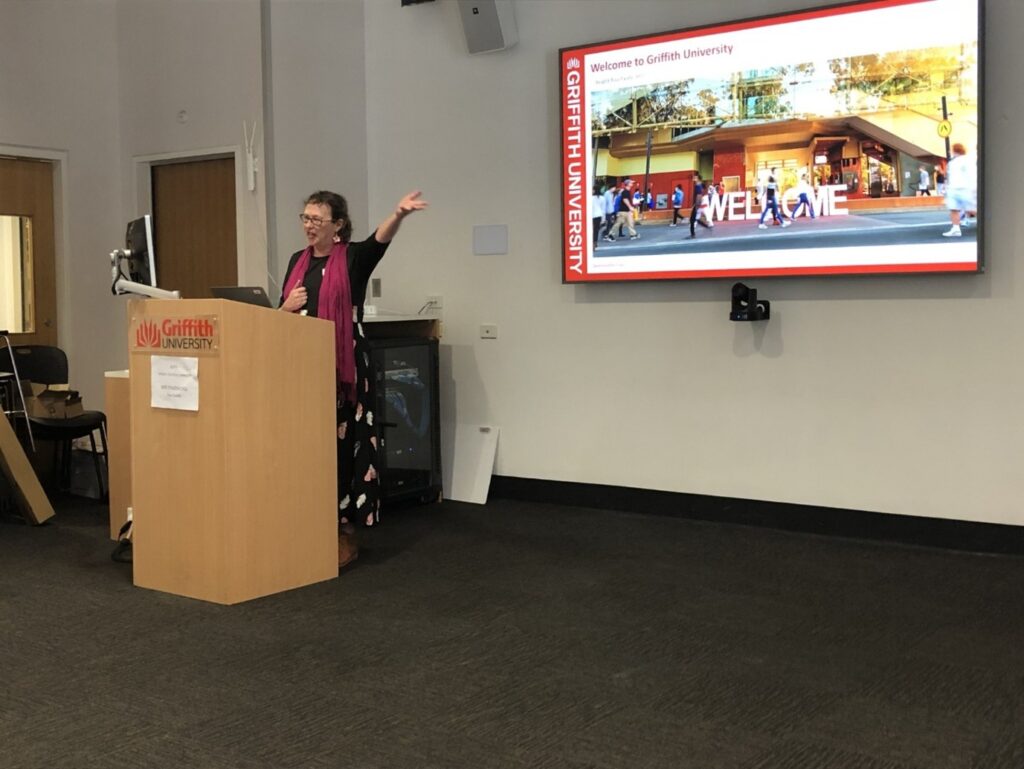 Sandra also summed up the aims of the conference superbly:
Sandra also summed up the aims of the conference superbly:
Finally, she introduced our very first Insight APAC theme song! It was created by Suno AI, and you can listen to it here.
Our next presenter was Scott Gibbens, Head of Product at Technology from Sage. Scott joined us in the early hours of the UK morning to present on the 2025 Talis Aspire roadmap highlights and upcoming improvements for 2025/2026. Throughout the session, we heard plenty of questions from attendees around copyright, open access, tagging and Talis Engage. You can read our blog post about the new Talis Engage feature within Talis Aspire here.
After a coffee break, our Talis Aspire User Group representatives Natalie Hull from The University of Queensland and Bex Carruthers from Deakin University took us through an icebreaker activity of which tested everyone’s book knowledge.
Next up we had Isabelle Laskaris, Support Consultant at Technology from Sage, who presented on User Metrics and Trends. Looking across our 13 APAC institutions, Isabelle took us through the data around the top 10 vendors across reading lists, LTI usage, student reading intentions, the proportion of electronic items and academic edits across reading lists in the region.
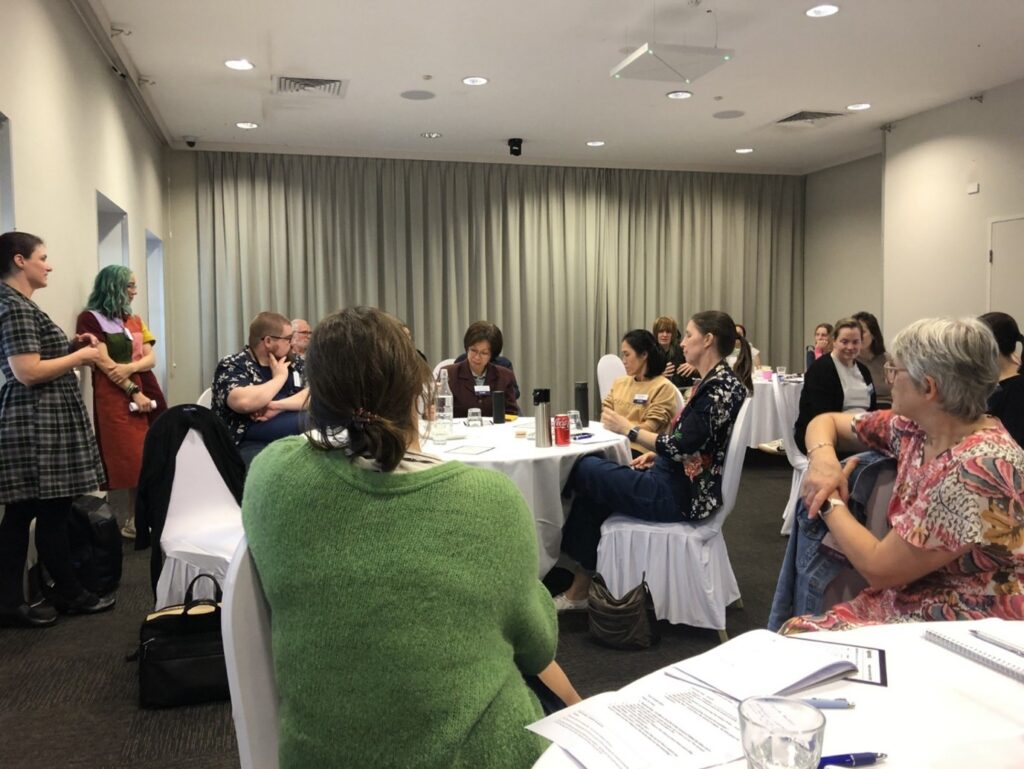
After lunch, we had our user group discussion hosted by TAUG reps Natalie and Bex. This is one of the cornerstone sessions of Insight APAC, with lots of engaging discussion amongst everyone in the room. This year, AI dominated the conversation (surprise, surprise!) with lots of sharing and questioning around best practices and the way forward. We also touched on issues such as eBook subscription models and reading list length.
Our final session of the day was hosted by Nicola Langford who gave an overview of Technology from Sage’s three previous whitepapers and unveiled key findings from the brand-new Librarian Futures Part IV: Librarian Leadership on the AI Frontier. If you haven’t yet downloaded the report, you can do so here.
After a quick welcome from Nicola, we kicked off Day Two of the event with a presentation from Hannah Armitage, Discovery UX Specialist at The University of Melbourne. Hannah joined us virtually to present on “user empathy” and the library’s quest to understand and transform the online library experience. Hannah shared how the library undertook a project intended to really get to know their users and how building a series of archetypes around their users has helped the library team to empathize and better serve their diverse user communities.
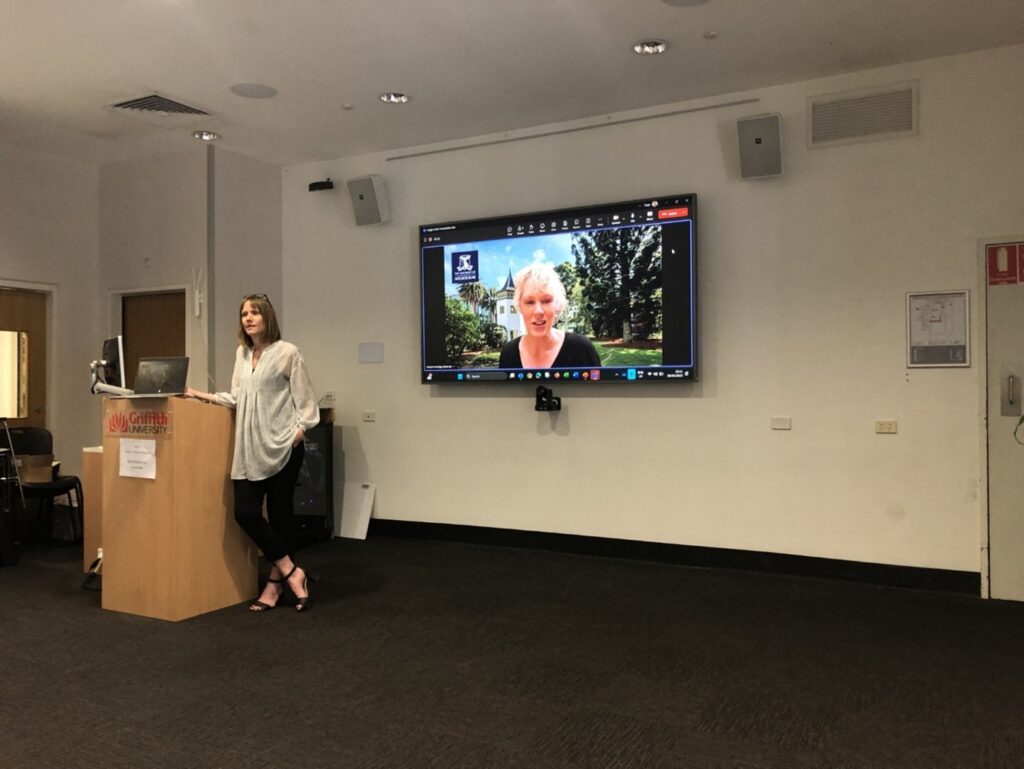
Next up, Jamie McDonald, Reading Lists and Resource Sharing Specialist at La Trobe University, showed us La Trobe’s Reading List Digital Usage Dashboard, built using Power BI and Advanced MIS data. Intended to spark conversations with academics around the reading list resources that have been engaged with, Jamie took us through the process of creating the dashboard including the challenges and limitations and hopes for the future. Jamie also then took us through how he uses Talis API’s to retrieve valuable data from reading lists and to update, create and remove resources and lists.
Our next session was hosted by Grace Fu, Librarian and Katrina Henderson, Business Librarian (both from Griffith University) who spoke about their cross-team efforts to transition 100% of required and recommended readings online before 2026. Grace and Katrina both spoke about their respective roles and their team roles within the project and how they prepared the data, communicated with publishers and academics, and used tools such as Power BI and Excel to help them in their efforts.
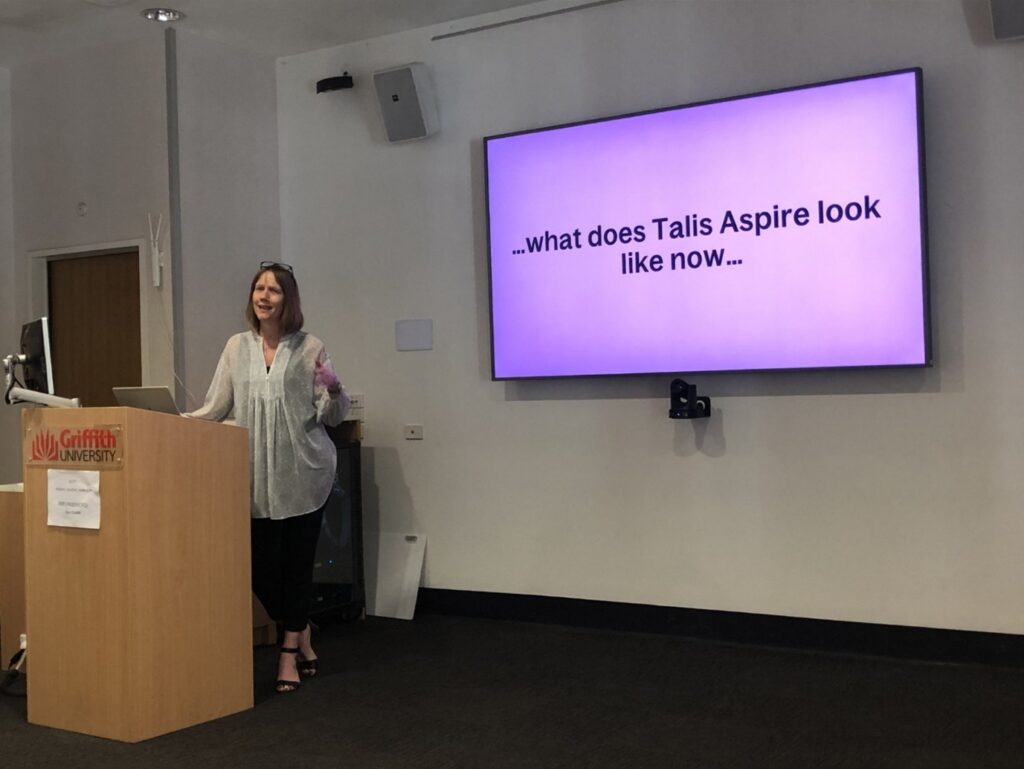
After a coffee break, Nicola Langford challenged the room to imagine it’s 2030 and posed the questions: What would your ‘dream’ resource list system look like? What major innovations would you include? How would it evolve to help you deliver your strategic objectives? The challenge was to ‘think big.’
We then allowed each table time to think about their answers and report back to the rest of the room. There were some fascinating and valuable suggestions ranging from using AI to build reading lists via content in the LMS to more guided student and academic usage of readings lists through features such as information on length of reading list time and a traffic light system to indicate which resources are and are not used. These contributions have been delivered to the Technology from Sage Product team.
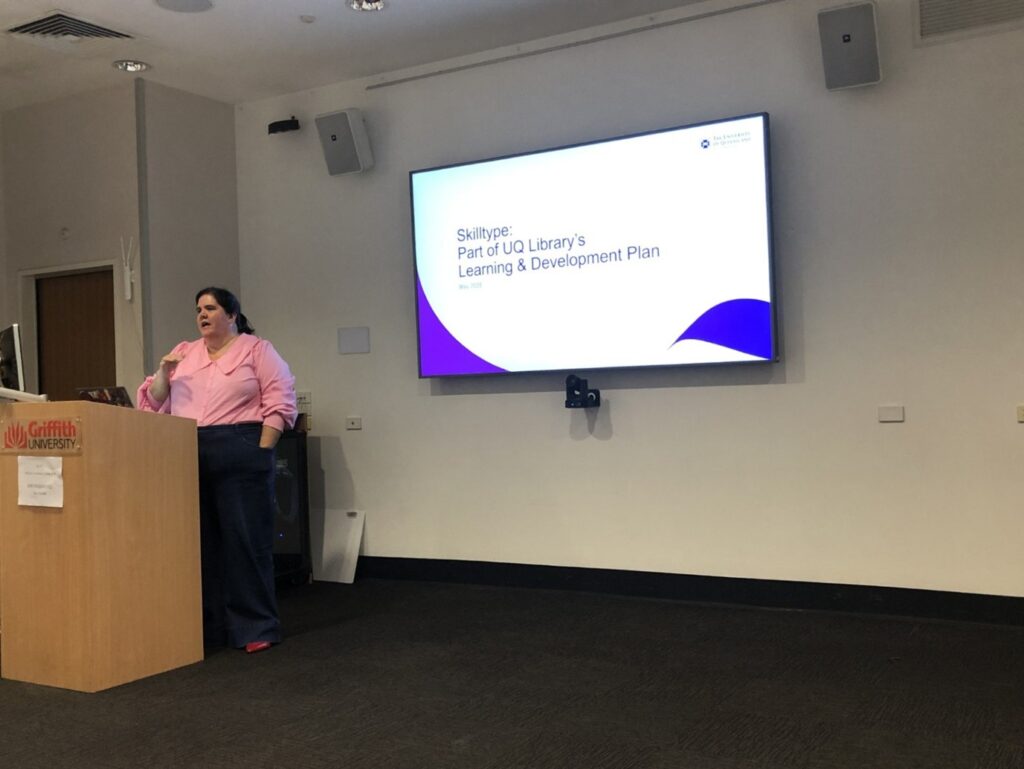
After lunch, Anna Lagos, Associated Director, Operations, Technology and Strategy from The University of Queensland joined us to discuss the university’s implementation of Skilltype. Skilltype is a learning platform with thousands of resources organized by skills and development needs which will help UQ to meet their objectives around People and Culture commitments. Anna provided a live demonstration of the Skilltype platform and discussed how the insights the platform offers might help the library decide what skill areas to focus on.
Our final session was hosted by Nicola Langford who went through the student-specific responses around AI in the latest Librarian Futures whitepaper: Librarian Leadership on the AI Frontier. We had a lengthy discussion around the fact that 45% of students said that they were “cautious and careful” in their approach to AI in their academic work and what that might mean for students, academics and libraries alike.
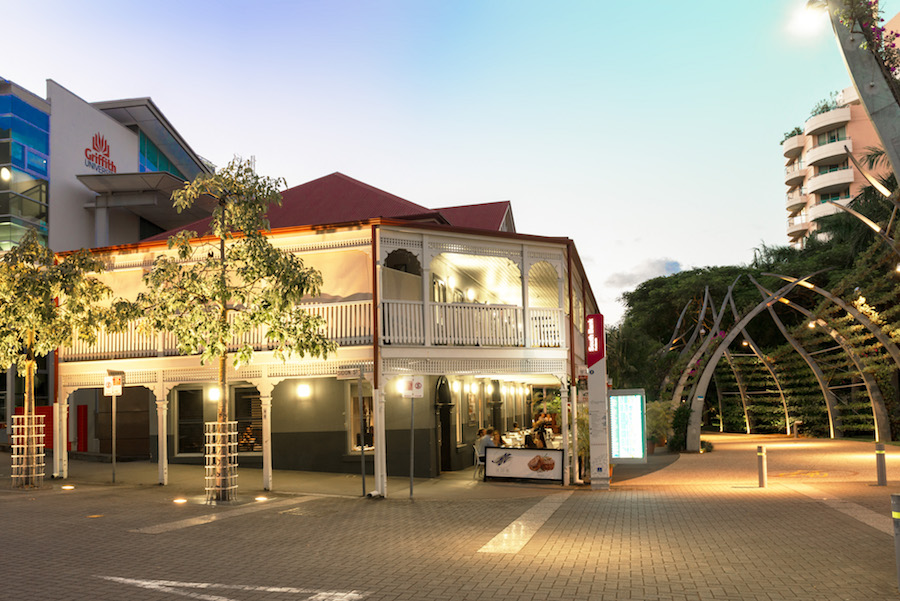
For our parting words, we thanked Griffith University and all their library team for hosting the event and all our speakers for participating and sharing their knowledge. We had a great time and hope the spirited conversations, discussion and knowledge sharing can continue throughout the year and beyond.
Don’t forget to check out the AI-generated theme song Sandra created, and the Insight Asia-Pacific 2025 reading list put together by Neil Cotter from Griffith University. We’re already looking forward to Insight Asia-Pacific 2026…